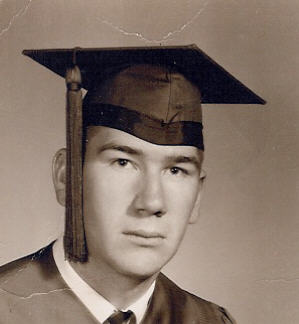TRANSCRIPTION
Where were you born?
I was born
in a Robstown hospital.
Where did you live as a child?
I lived in the country between
Robstown and Corpus Christi. I lived with my parents and my five sisters. My
closest neighbor was about a hundred yards away.
Where did you attend school?
I went to school in Robstown. My high
school was about the size of today's 2A high school. My graduating class had 85
people. After high school, I attended Texas A&I in Kingsville. Today, it is
called Texas A&M.
When did you move to San Antonio?
I moved to San Antonio when I was
25 years old. The construction company that I worked for was in Corpus Christi.
They started to get jobs in San Antonio so I followed them to San Antonio, where
I decided to stay.
Why did you decide to join the Reserves?
I had just finished
college and the draft had just started. I figure I could wait to be drafted or
go ahead and join the Reserves. I decided to join.
What kind of jobs did you have while in the Reserves?
One of my
first jobs was a cartographer
(a person who draws maps). That was fun and interesting. I drew many different
types of maps for the military. I was trained to do that at Fort Meade in
Maryland. I did that for about three years. Then in 1976, I went to a Reserves
unit here in San Antonio. I stayed with that particular unit for two years
before I moved to the civil affairs unit where I spent the rest of my time in
the Reserves.
Were you or other partners in the Reserves ever worried about going to war?
Yeah. Several times. There was a possibility that we could be sent to
the Vietnam War or wherever but we never were. Even later, around Christmas
1989, when we (the U.S.) went down to Panama, they asked me if I wanted to
volunteer to be active. I told them I really couldn't because I was a
firefighter. Now, if they called me and told me that I had to go, then okay, but
I just couldn't volunteer with my job.
During the Cold War, were you or your family ever scared?
The only
time that I was ever scared and my parents showed their concern was in 1962 with
the Cuban Missile Crisis .
President Kennedy came on the television and made a speech about that. I
remember a friend of the family lived near a naval base and my family and I
would go over sometimes. We used to sit and watch planes land and take off at
the naval base. One time, we saw a plane that we never saw before. Later on we
found out that it was a U-2, which is a spy plane. I guessed it was flying
towards Cuba. I never saw it before. This was around the same time as the
crisis.
Do you remember the spy plane being shot down in Russia?
Yeah. I
heard a little about it. It was probably on the news but, I never really paid
attention and my parents never really talked about it.
Do you remember the civil defense?
Yeah. It's a lot different
today. They used have civil
defense shelters for nuclear fallout and bomb shelters. They had these
shelters all over. They were located in basements, buildings, and schools. They
used to have signs that said "This is a civil defense shelter". They also used
to have Continental Radio. It gave alerts if we were to have a nuclear strike.
They used to have tests like today with the emergency broadcast test on
television. It was the same way. It was quite often. Especially in the summer,
it would happen at different times. It became aggravating.
What else do you remember during the Cold War?
I remember when
Russia sent Sputnik up into orbit. I also remember when the United States sent
up Echo . Echo was a
huge balloon that was used as a communication satellite. I used to stand outside
at night and look for them in the sky. I never saw Sputnik but I did see Echo. It
looked like today's space station going over. It was very bright and easily
seen.
Was segregation a big thing when you were younger?
No. It wasn't a
big problem where I grew up at least. We had whites, Hispanics, and blacks. They
was no problems. As far as I knew, the kids got along and the parents got along.
There weren't much racial issues down there.
ANNOTATED BIBLIOGRAPHY
Robstown-
The Handbook of
Texas Online is a multidisciplinary encyclopedia of Texas
history, geography, and culture sponsored by the Texas State Historical
Association and the General Libraries at UT-Austin. It was produced in
partnership with the College of Liberal Arts and the General Libraries at the
University of Texas at Austin. Copyright © The Texas State Historical
Association. Last Updated: May 6, 2004.
Cuban Missile Crisis- information
about the Cuban Missile Crisis during the Cold War. This website was funded by
the National Endowment for the Humanities in partnership with Michigan State
University. Last Update: May 21, 2002.
cartographer-
information about what a cartographer does and how to become one.Copyright © 2005
State of California. Last Updated: April 19, 2005.
Echo- information
about how the Echo satellite was built, what materials were used, and what it
was used for. This website Is sponsored by Spacebank.com. Copyright © Mark Wade,
2005. Last Update: March 28, 2005.
civil
defense- information about how civil defense was during the Cold War. It
talks about procedures that people took to be prepared for a nuclear strike.
Return to Oral History Projects

